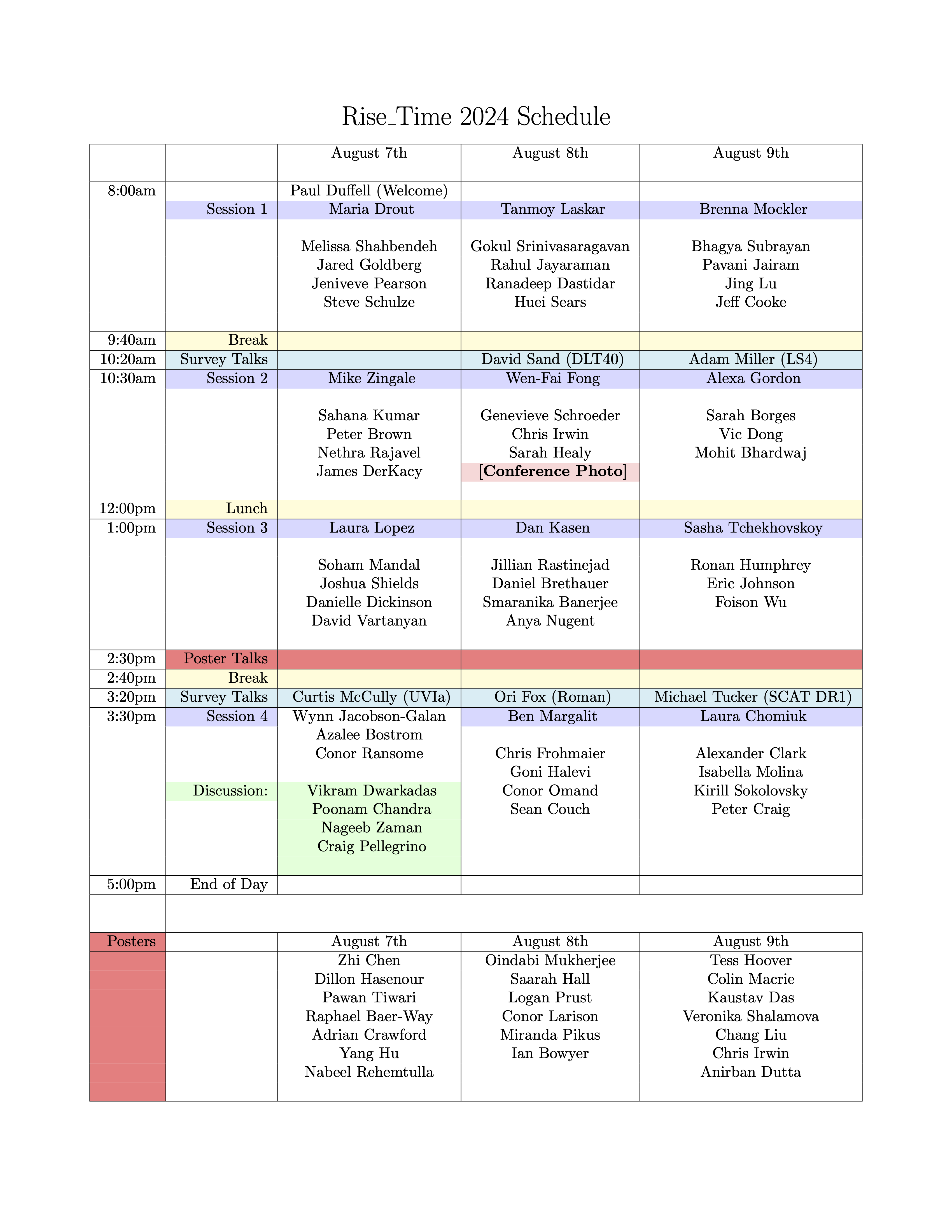Rise_Time 2024: Explosive Astrophysics in the Era of High-Cadence Astronomy
August 7-9, 2024
Purdue University, West Lafayette, Indiana
Conference Organizers:
Paul Duffell
Abigail Polin
Dimitrios Giannios
Dan Milisavljevic
Unfortunately our registration process is closed at this time, as our participant count was much higher than expected. If you did not register in time but still wish to attend, please contact the organizers. The speaker list has been finalized, see the schedule below.
Transportation information Here (Purdue is accessible from Indianapolis and Chicago O'Hare airports; Indianapolis is closer but both are doable):
How to get to Purdue University
The conference will be held in Armstrong Hall on Purdue's West Lafayette Campus. This is right next door to the Physics building, on the corner of Stadium and Northwestern. We will be in the main auditorium, adjacent to the atrium. Room 1010. 
Motivation
Time-domain astronomy is rapidly evolving, and astronomers have become increasingly good at catching fast transients on very short timescales. Additionally, both theorists and observers working on astrophysical transients have a habit of expanding their science across several subfields, resulting in a highly interconnected community. Experts on supernovae often do science relevant to Gamma Ray Bursts and Tidal Disruption Events. A GRB theorist may have a lot to say about FRBs, and simply everyone seems to be interested in FBOTs!
This effect is even more significant when considering multi-messenger science. When an event spans many observing channels, a wide range of theorists and observers that previously might have studied very different physical processes and emission mechanisms must combine forces and communicate across previously-drawn divisions to understand a single given event.
This motivates a continuous opening of new lines of communication between transient scientists, developed in a highly active and engaging conference setting. Rise_Time is a conference for transient astrophysicists of all kinds; theorists, observers, and numericists; experts on gravitational waves, radio, optical, IR, UV, X-Rays, gamma rays, cosmic rays, neturinos, and any other observing technologies we didn't think to mention.
We aim to generate a highly diverse, inclusive, and interactive environment, with plenty of time and energy allocated for questions and interactive discussions. Attendees are encouraged to be participants rather than spectators.
Registration is free! There is no reason not to register today and submit an abstract for a poster, talk, or discussion session!
